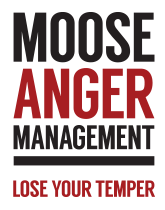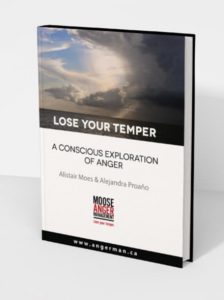The Hidden Connection Between Stress, Emotions, and Autoimmune Health
In today’s fast-paced world, stress has become a near-constant companion. What many people don’t realize is how profoundly emotional stress and unprocessed emotions can impact the body, especially for women. From increased risk of autoimmune diseases to digestive disorders and heart problems, the mind-body connection is stronger than we often acknowledge.
Autoimmune Disease – Why Are Women More Affected?
Autoimmune diseases, like lupus, rheumatoid arthritis, psoriasis, and some forms of diabetes, occur when the immune system mistakenly attacks the body’s own tissues. Strikingly, about 70–80% of those diagnosed with autoimmune conditions are women. But why?
Beyond genetic or hormonal explanations, there’s a growing recognition that societal expectations may play a key role. Many women are conditioned from a young age to suppress emotions, especially anger, in favor of being “nice,” accommodating, and self-sacrificing. This emotional suppression doesn’t just affect mental health, it can dampen the immune system over time.
As ancient healing systems like Traditional Chinese Medicine and Ayurveda have long taught, the mind and body are inseparable. Emotional repression, particularly when chronic, can lead to physiological imbalances that set the stage for disease.
 The Physiology of Emotion – What Happens Inside?
The Physiology of Emotion – What Happens Inside?
When we experience strong emotions like anger or anxiety and don’t process them, the body reacts. Chronic stress and emotional repression can activate the body’s “fight or flight” response, a biological state designed for short bursts of survival, not long-term living.
In this state, blood flow is redirected away from non-essential systems (like digestion) toward large muscle groups to prepare for a perceived threat. Over time, this can impair digestion and the ability of the stomach lining to regenerate, leading to issues such as:
- Acid reflux
- Irritable bowel syndrome (IBS)
- Gastritis
- Stomach ulcers
Unprocessed emotions also impact the cardiovascular and immune systems. Too much outward anger may increase the risk of heart disease and stroke, while too much inward anger, pretending to be “fine” while suppressing distress, can lead to chronic inflammation and autoimmune conditions.
 Breathing as a Healing Tool
Breathing as a Healing Tool
So, how do we counteract the effects of stress and emotional repression? One simple, science-backed method is intentional breathing, specifically, box breathing (also called square breathing).
This technique involves:
- Inhaling through the nose for 4 counts
- Holding the breath for 4 counts
- Exhaling through the nose for 4 counts
- Holding again for 4 counts
Practicing this cycle, even just four rounds at a time, helps calm the nervous system, slow the heart rate, and return the body to a state of balance. It’s so effective that it’s even used by the U.S. military to help veterans manage PTSD.
The physical benefits include:
- Lower blood pressure
- Reduced heart rate
- Improved digestive function
- Enhanced emotional regulation
And most importantly, it puts you back in control of your emotional state, helping you respond to stress instead of react.
Getting back to you…
Our emotional health isn’t just a “mental” issue, it’s deeply physiological. The body keeps score of chronic stress and unspoken feelings, and over time, these can manifest as real, diagnosable conditions. The good news? We have tools to restore balance.
Whether you’re facing the pressures of modern life, navigating emotional turmoil, or simply looking to boost your health, intentional breathing and emotional awareness can be powerful first steps.
Breathe deeply, express authentically, and remember: caring for your mind is caring for your body.
“Ready to take back control of your health? Start by tuning into your emotions and calming your nervous system. Try box breathing today and give your body the balance it’s been asking for. Your healing begins with a single breath.”
Ready to embark on a journey of health and healing?
You don’t have to navigate this path alone. At Moose Anger Management and Healing Anger (for Women), we provide resources and support to help you heal generational wounds and build healthier emotional habits.
Take the first step today:
- Call us for a confidential consultation
- Join our supportive group sessions for men or group sessions for women
- Access our specialized one-on-one counseling
Contact Moose Anger Management at 604-723-5134 or email us for more info@angerman.ca.






